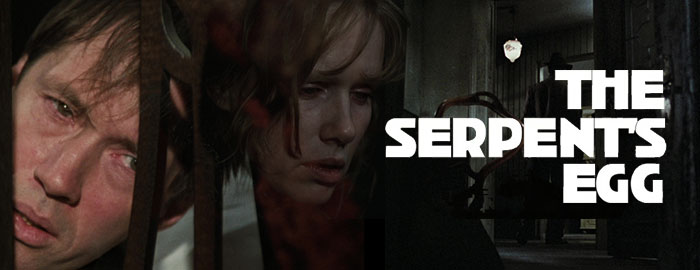

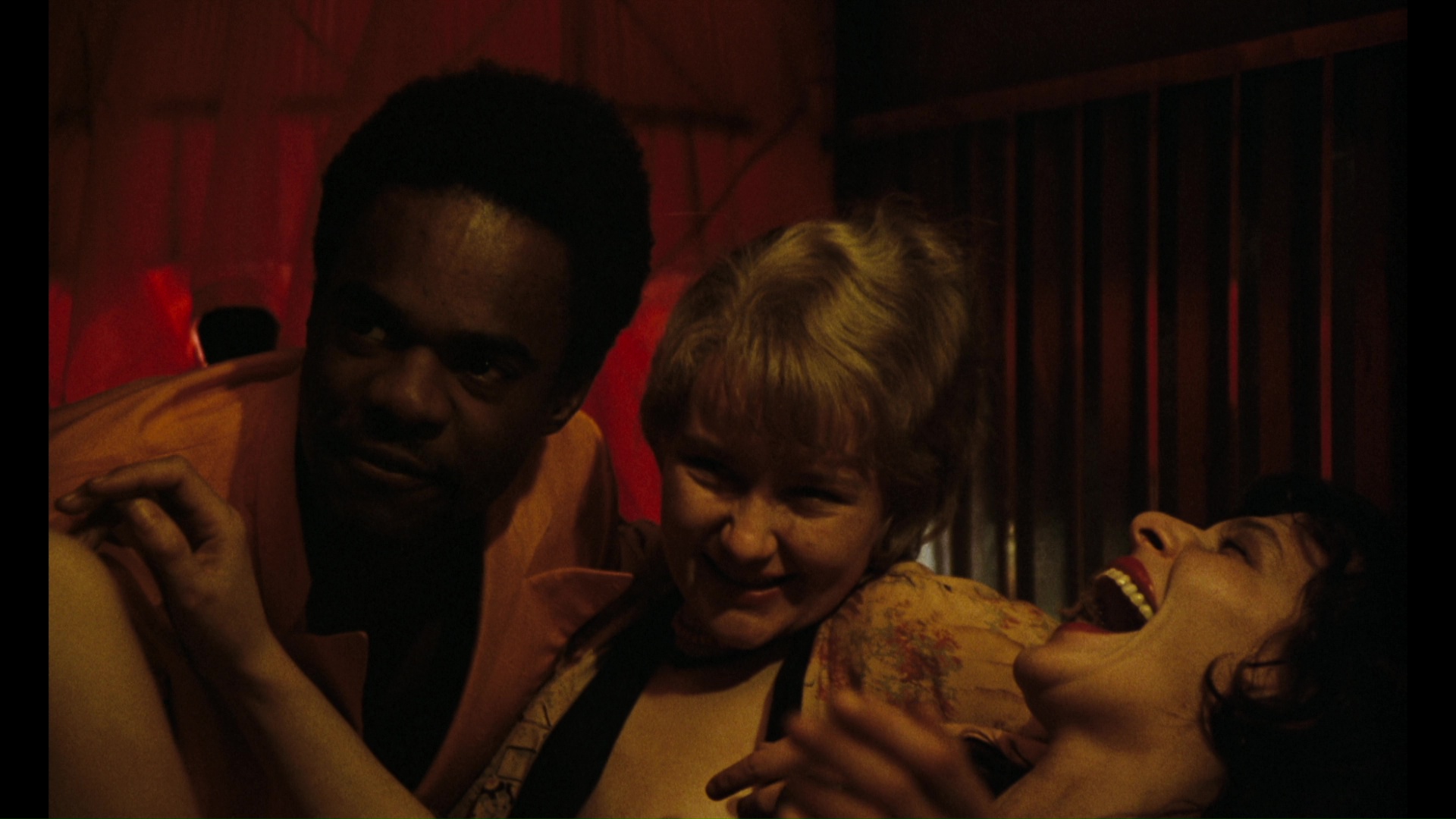 word "mistake" tends to get thrown
word "mistake" tends to get thrown 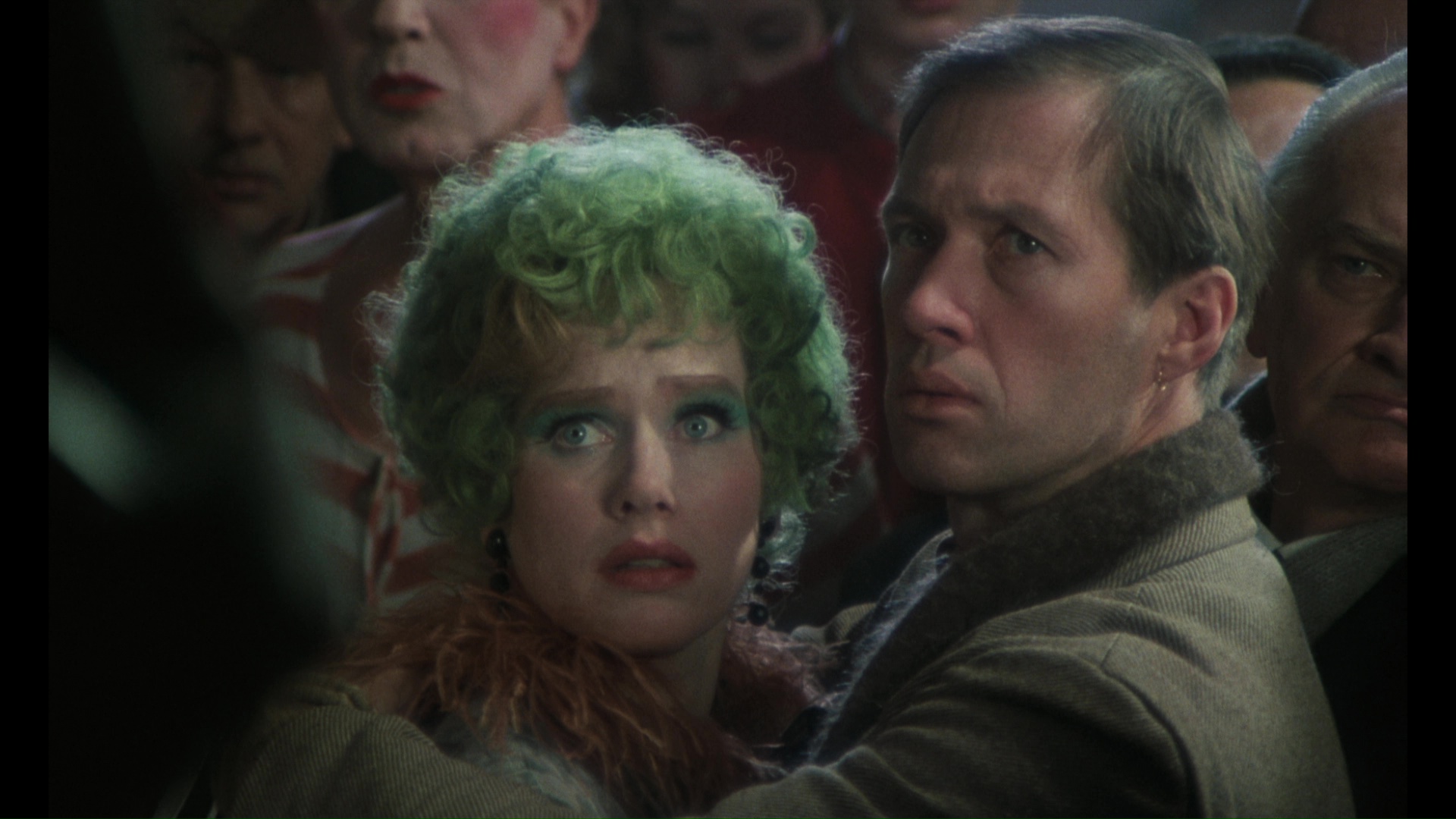 around a lot when talking about Ingmar Bergman's sole big Hollywood studio production made with producer Dino De Laurentiis. In fact, the maestro himself had less than kind words to say on occasion before softening up about it, but over the years it's taken on a certain mystique and plays quite well today as a unique paranoid vision from a period when the art house and mainstream were almost on the same track.
around a lot when talking about Ingmar Bergman's sole big Hollywood studio production made with producer Dino De Laurentiis. In fact, the maestro himself had less than kind words to say on occasion before softening up about it, but over the years it's taken on a certain mystique and plays quite well today as a unique paranoid vision from a period when the art house and mainstream were almost on the same track. 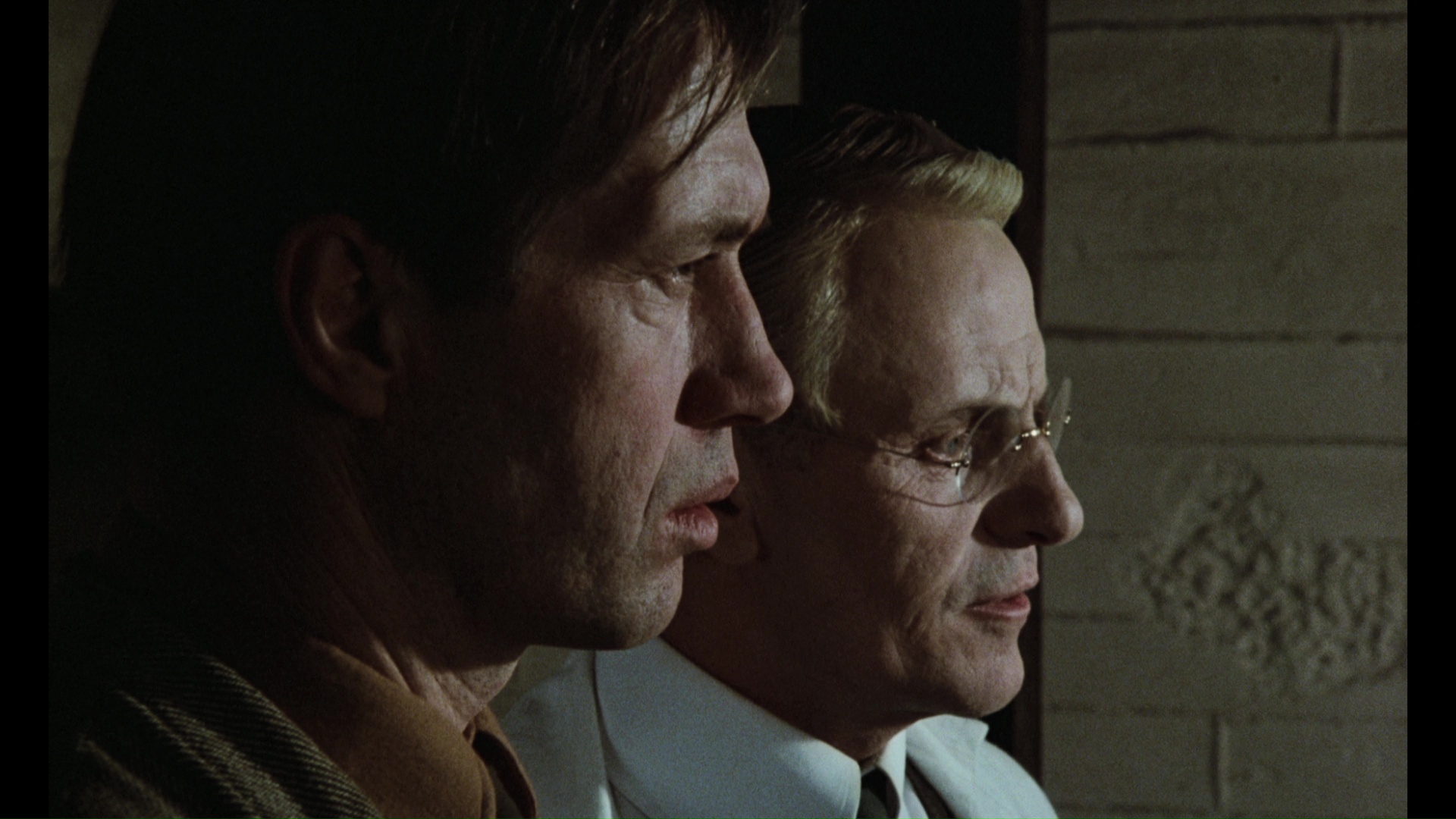 of the pathology of human cruelty, a morbid streak that would turn up in some of his other occasional forays into pitch black darkness like Hour of the Wolf and The Rite. The chilly response to the film hardly exists in a vacuum as other filmmakers like Federico Fellini, Claude Chabrol, Rainer Werner
of the pathology of human cruelty, a morbid streak that would turn up in some of his other occasional forays into pitch black darkness like Hour of the Wolf and The Rite. The chilly response to the film hardly exists in a vacuum as other filmmakers like Federico Fellini, Claude Chabrol, Rainer Werner  Fassbinder, Wim Wenders, and Luchino Visconti were all making bids for stronger English-language prominence with mixed results. It's hard to imagine that a film with this tone and subject matter was ever really intended by its creator to be some sort of Hollywood calling card; it's a creepy, jagged concoction with Carradine's inherent stoicism serving him well in a tricky role that constantly teeters on the edge of being unsympathetic. The revelation of exactly what's going on is particularly grim and one of the more harrowing passages in Bergman, not dissimilar from the nightmare exposition amateur film portion of Brian De Palma's Sisters as it lays out a string of psychological horrors in front of the viewer.
Fassbinder, Wim Wenders, and Luchino Visconti were all making bids for stronger English-language prominence with mixed results. It's hard to imagine that a film with this tone and subject matter was ever really intended by its creator to be some sort of Hollywood calling card; it's a creepy, jagged concoction with Carradine's inherent stoicism serving him well in a tricky role that constantly teeters on the edge of being unsympathetic. The revelation of exactly what's going on is particularly grim and one of the more harrowing passages in Bergman, not dissimilar from the nightmare exposition amateur film portion of Brian De Palma's Sisters as it lays out a string of psychological horrors in front of the viewer. 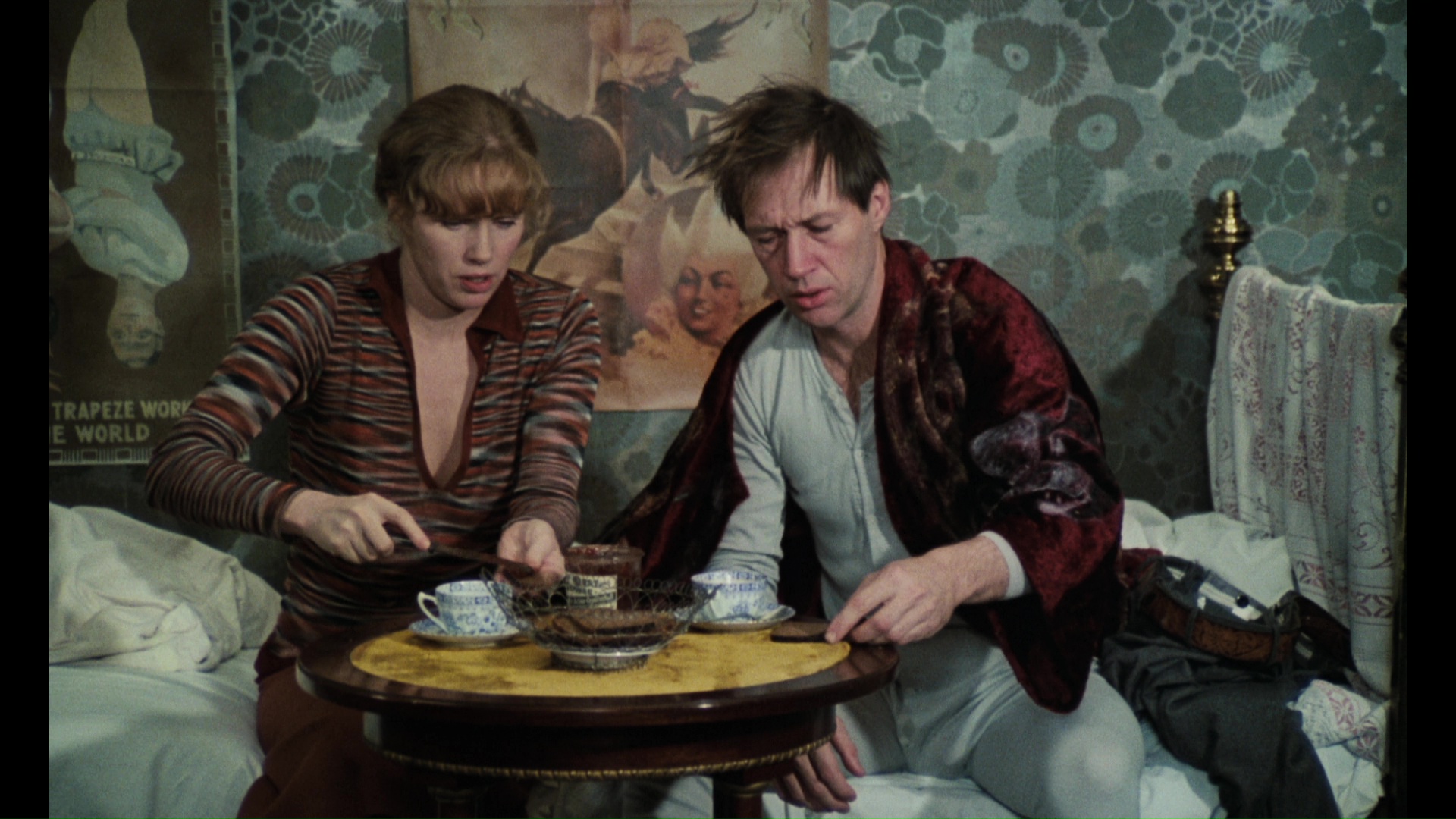 far
far 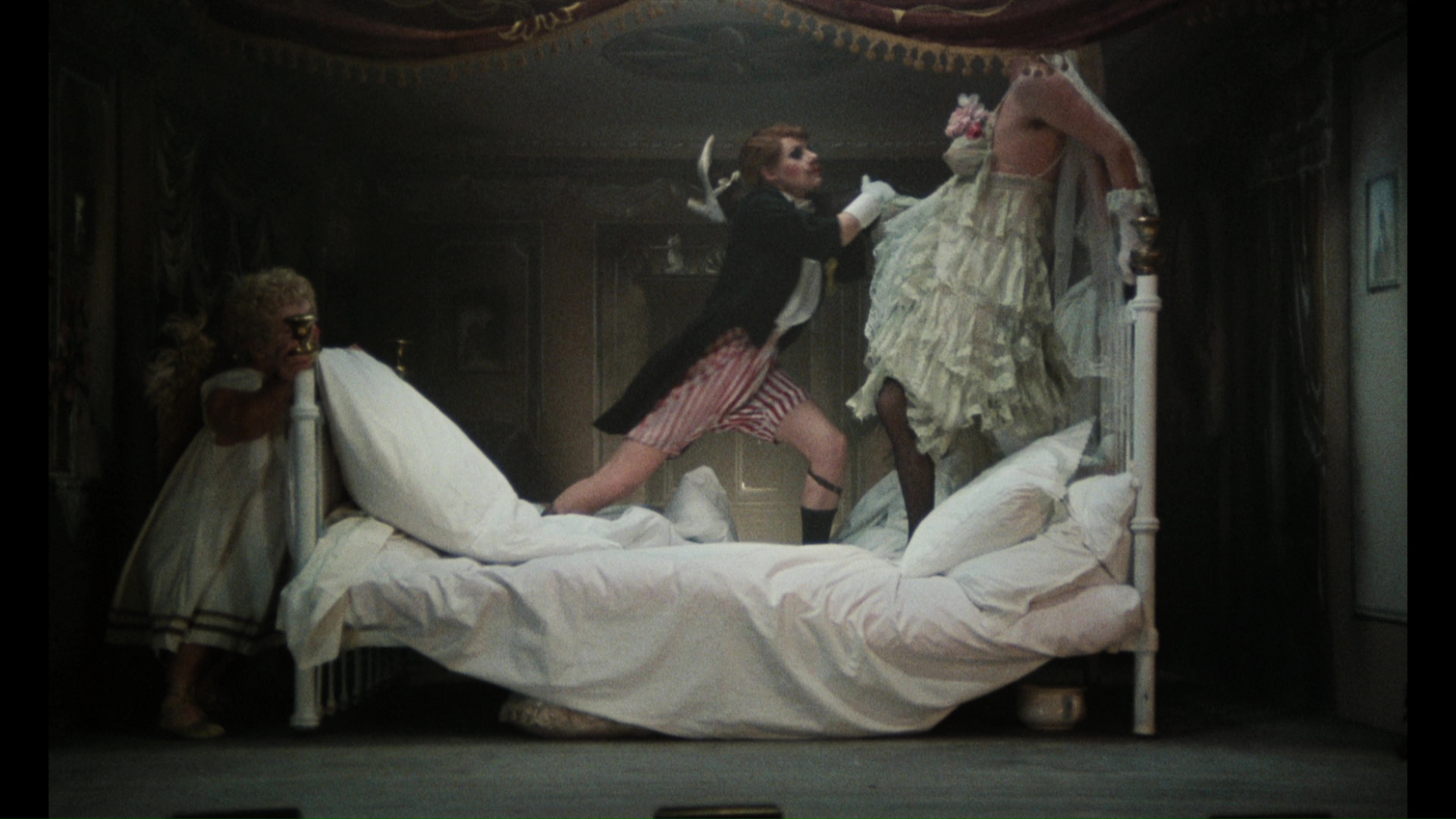 more substantial, featuring not only the "Away from Home" featurette but also Carradine's audio commentary from the DVD (his descriptions of Bergman as "lovable and hatable" for example are priceless). Audio is LPCM English mono (with some bits in intentionally unsubtitled German) with optional English SDH subtitles. Image quality for both releases is identical, cooler than the DVD but vastly superior with a great deal more detail, refined film grain, and gradation in the darker scenes (of which there are many). Also ported over from the DVD is "German Expressionism" (5m36s) with Gervais expounding more about the film's position outside the usual Bergman film traits thanks to its efforts to invoke the look and feel of 1920s and early 1930s German cinema, particularly that of Fritz Lang. The new "Bergman's Egg" (25m42s) with author Barry Forshaw touching of many aspects including Bergman's knack for building his films around women, the circus thread running through his films, and the public perception of Bergman cinema and its symbolism as well as the strong content that pushed the envelope at the time. The Paramount theatrical trailer is also included along with a huge, 94-image stills gallery. The packaging comes with reversible sleeve options and, in the first pressing only, new liner notes by Geoffrey Macnab.
more substantial, featuring not only the "Away from Home" featurette but also Carradine's audio commentary from the DVD (his descriptions of Bergman as "lovable and hatable" for example are priceless). Audio is LPCM English mono (with some bits in intentionally unsubtitled German) with optional English SDH subtitles. Image quality for both releases is identical, cooler than the DVD but vastly superior with a great deal more detail, refined film grain, and gradation in the darker scenes (of which there are many). Also ported over from the DVD is "German Expressionism" (5m36s) with Gervais expounding more about the film's position outside the usual Bergman film traits thanks to its efforts to invoke the look and feel of 1920s and early 1930s German cinema, particularly that of Fritz Lang. The new "Bergman's Egg" (25m42s) with author Barry Forshaw touching of many aspects including Bergman's knack for building his films around women, the circus thread running through his films, and the public perception of Bergman cinema and its symbolism as well as the strong content that pushed the envelope at the time. The Paramount theatrical trailer is also included along with a huge, 94-image stills gallery. The packaging comes with reversible sleeve options and, in the first pressing only, new liner notes by Geoffrey Macnab. ![]()